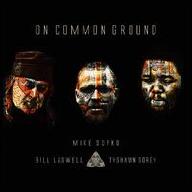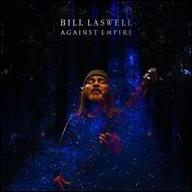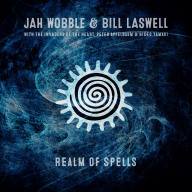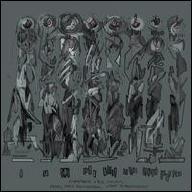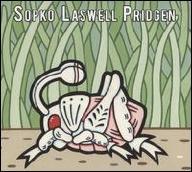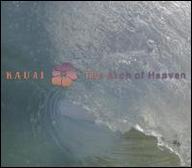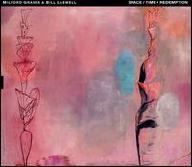Born on February 12, 1955, in Salem, Illinois, he initially played guitar, but soon switched to bass. Raised primarily in the Detroit area, he honed his skills in local funk outfits before relocating to New York in 1978. There Laswell formed Material, an outlet for his experimental approach toward sounds ranging from jazz to hip-hop to worldbeat. Originally the backup unit for Daevid Allen, the group soon began working on its own, issuing its debut EP Temporary Music in 1979. While Material's early work was more esoteric, they soon released more accessible, pop-influenced music, including the club classic "Bustin' Out" (featuring Nona Hendryx) and the full-length One Down, which included one of Whitney Houston's first lead vocal performances.
In addition to fronting Material, Laswell also mounted a solo career, issuing Baselines in 1983 on Celluloid, a label he partly owned and operated. Appearances on key recordings by the likes of David Byrne, John Zorn, Fred Frith, and the Golden Palominos established Laswell as a virtual nexus of the downtown N.Y.C. community, and he broke into the mainstream with his production work on Herbie Hancock's 1983 smash "Rockit," which he also co-wrote; the follow-up LP, Sound-System, won him a Grammy. Throughout the mid-'80s Laswell was everywhere, playing bass on LPs from artists including Mick Jagger, Peter Gabriel, Yoko Ono, and Laurie Anderson; he also joined the avant group Curlew, and produced a number of African acts.
In 1986, Laswell joined guitarist Sonny Sharrock, drummer Ronald Shannon Jackson, and saxophonist Peter Brötzmann in the group Last Exit; a second solo LP, Hear No Evil, appeared two years later, and after a long hiatus he also resurrected Material in 1989 with Seven Souls. Another project, the hip-hop-flavored Praxis, was resumed after almost a decade of inactivity with 1992's Transmutation (Mutatis Mutandis). In 1990, Laswell formed another label, Axiom, to explore his interest in the new sounds of ambient and techno; where in the past his work rarely appeared solely under his own name, by the middle of the decade he was issuing several solo records annually in a wide range of styles from dub to jazz. He also remained among the most prolific producers in the business, collaborating with the likes of Dub Syndicate, Pete Namlook, Buckethead, and DJ Spooky. In 1998 he released Panthalassa: The Music of Miles Davis 1969–1974, a "remix translation" that won acclaim across the music world. IN 2001 he issued one with Carlos Santana as its subject entitled Divine Light: Reconstructions Mix Translation.
In 2004, Laswell signed a multi-album label deal with the Sanctuary Records group. The deal spawned his new label, Nagual. He also began to collaborate on a series of drum'n'bass-styled recordings with Submerged (aka Kurt Gluck of the Ohm Resistance imprint), the first of these -- attributed to Bill Laswell vs. Submerged -- was entitled Brutal Calling and issued by Avant in 2004 with contributions from Toshinori Kondo and Guy Licata. Through the Sanctuary label's earlier acquisition of the seminal reggae label Trojan, Laswell now had access to the Jamaican label's sizable back catalog. Picking some of his favorite cuts and remixing them, Laswell issued the Trojan-sourced Dub Massive: Chapter One and Chapter Two in May 2005.
Laswell and Submerged re-teamed under the Method of Defiance moniker for 2006's The Only Way to Go Is Down on Sublight Records. This was followed by 2007's Inamorata, on Ohm Resistance. This date found the pair teaming various drum'n'bass producers -- including Future Prophecies, Evol Intent, and SPL -- with jazz, rock, and avant artists such as Herbie Hancock, Pharoah Sanders, Nils Petter Molvaer, and Buckethead. THat same year he issued the mix translation outing The Tony Williams Lifetime: Turn It Over (Redux). Laswell also released a collaboration with Finnish producer Fanu on Ohm Resistance titled Lodge, which includes contributions from Molvaer and Bernie Worrell. The notion of a live band created around the Method of Defiance structure was initiated with participation from Laswell, Worrell, Kondo, Licata, and Dr. Israel. The group was documented on Nihon from the RareNoise imprint in 2009.
In 2010, Laswell initiated a new label called M.O.D. Technologies. Said to be centered around the principles of a solidified Method of Defiance lineup, the label released three albums that year: Method of Defiance's Jahbulon (a reggae album featuring Hawk and Dr. Israel), the instrumental dub-centric Incunabula, and a live offering from Laswell's spouse, Gigi, with Material, entitled Mesgana Ethiopia. Laswell also collaborated with Submerged (who had left Method of Defiance) for a new group called the Blood of Heroes, which also included Dr. Israel, Enduser, and Justin Broadrick. The band released a self-titled debut and remix album Remain on Ohm Resistance in 2010.
Laswell collaborated with master reggae and Radical Jewish Culture bassist/composer David Gould on a dub version of the latter's 2009 album Feast of the Passover. The new recording, titled Dub of the Passover, was issued by Tzadik in 2011. Metastation released Aspiration, an electronic album billed to Bill Laswell Friends (including Alice Coltrane, Carlos Santana, Pharoah Sanders, and Zakir Hussain) -- the tunes were dedicated to the ensemble members' own inspirational figures, including H.H. Dalai Lama XIV, Sonny Sharrock, Rumi, and Pattabhi Jois. The Blood of Heroes' second album, The Waking Nightmare, appeared in 2012. M.O.D. Technologies continued releasing material, including archival releases by Praxis as well as Laswell's collaborations with artists including DJ Krush, Milford Graves, and Wadada Leo Smith. In 2014, Laswell collaborated with several Hawaiian musicians for the album Kauai: The Arch of Heaven, which appeared on Metastation. Laswell and Submerged collaborated once again in 2016, when After Such Knowledge, What Forgiveness? appeared on Ohm Resistance. Along with Masahiro Shimba, Laswell combined dub and opera on the ESP-Disk release Risurrezione. He also released work with Japanese drummer Hideo Yamaki and avant-rock guitarist Raoul Bjorkenheim.
In 2018, Laswell collaborated with drummer Simon Barker, guitarist Henry Kaiser, and saxophonist Rudresh Mahanthappa on Mudang Rock, an album inspired by the Shamanic ritual music of Korea. The following year, Laswell teamed with Jah Wobble to release the group offering Realm of Spells with guitarist Martin Chung, keyboardist George King, alternating drummers Mark Layton-Bennett and Hideo Yamaki, and guest Peter Apfelbaum on saxophone and flute. Before year's end, he cut the single "Showing Up"/"The Power of the Vote" with Dave Douglas, and released the 2017 Sonar session featuring electric guitarist David Torn.
In April 2020, Laswell released Against Empire, an electro-acoustic offering issued by MOD Reloaded. His sidemen on the session included Sanders and Apfelbaum on saxes and flutes, Herbie Hancock on electric piano, drummers Jerry Marotta, Chad Smith, Satoyasu Shomura, and Yamaki, and Adam Rudolph on percussion. In October he collaborated with guitarist Mike Sopko and drummer Tyshawn Sorey on the power trio outing On Common Ground. Freely improvised, it was inspired by the live albums of the Jimi Hendrix Experience and Cream. ~ Jason Ankeny & Thom Jurek, Rovi



